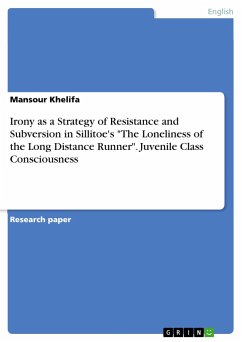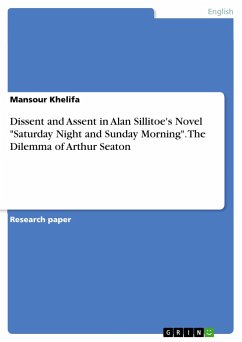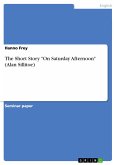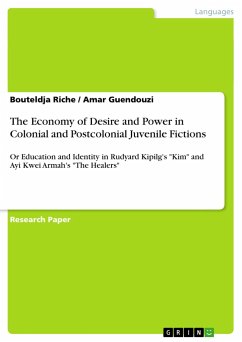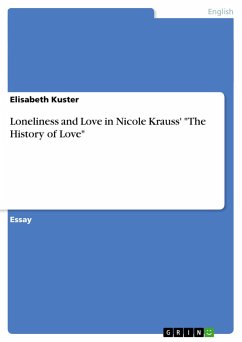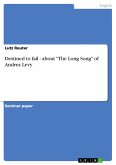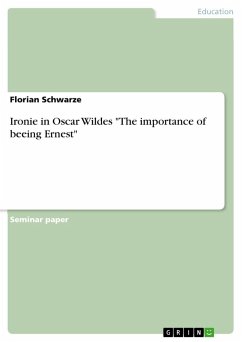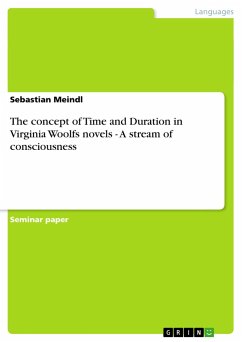Research Paper (undergraduate) from the year 2005 in the subject English Language and Literature Studies - Literature, , language: English, abstract: Literature and irony are intimately associated with man's predicament. Myth, epic, classical tragedy, "The Canterbury Tales", "Arabian Nights", "King Lear", Swift's "Modest Proposal", modern and post-modern literature such as Joyce's "A Portrait of The Artist as a Young Man", Orwell's "Animal Farm", Beckett's "Waiting for Godot", all of these devote a substantial part to irony. Whether it is Socratic, dramatic, tragic, "cosmic", Romantic, structural, or rhetorical, irony signifies a gap that needs filling. The importance of an ironical relation lies in the absence of harmony between the parties and the misunderstanding caused by it. Irony proceeds from "Dissymmetry", "Negation", "Denial", "Cancellation", "Concealment", "Parody", "Reversal", "Interchangeability", "Playfulness", "Witticism", "Understatement", etc.Commenting upon the superiority of "Metaphor", Aristotle says that it takes a genius to "perceive similarity" between two distinct objects. Irony stems precisely from the reverse, i.e. the perception of dissimilarity, or from the deliberately perverting and obliterating denial of what is perceived as distinct. If the purpose of Metaphor is to assemble, that of Irony is to dissemble (in Greek comedy the eiron is a "dissembler"). In a sense, while Metaphor relates to metonymy, Irony is germane to oxymoron and paradox. Yet, the Aristotelian concept of "Peripeteia" (Irony of events or Reversal of Fortune), which determines the real fabric of a "complex" fable, seems to allow for circularity instead of dislocation: "It is the coming full circle of a wheel, which first carries a man up and then down..." (81).

